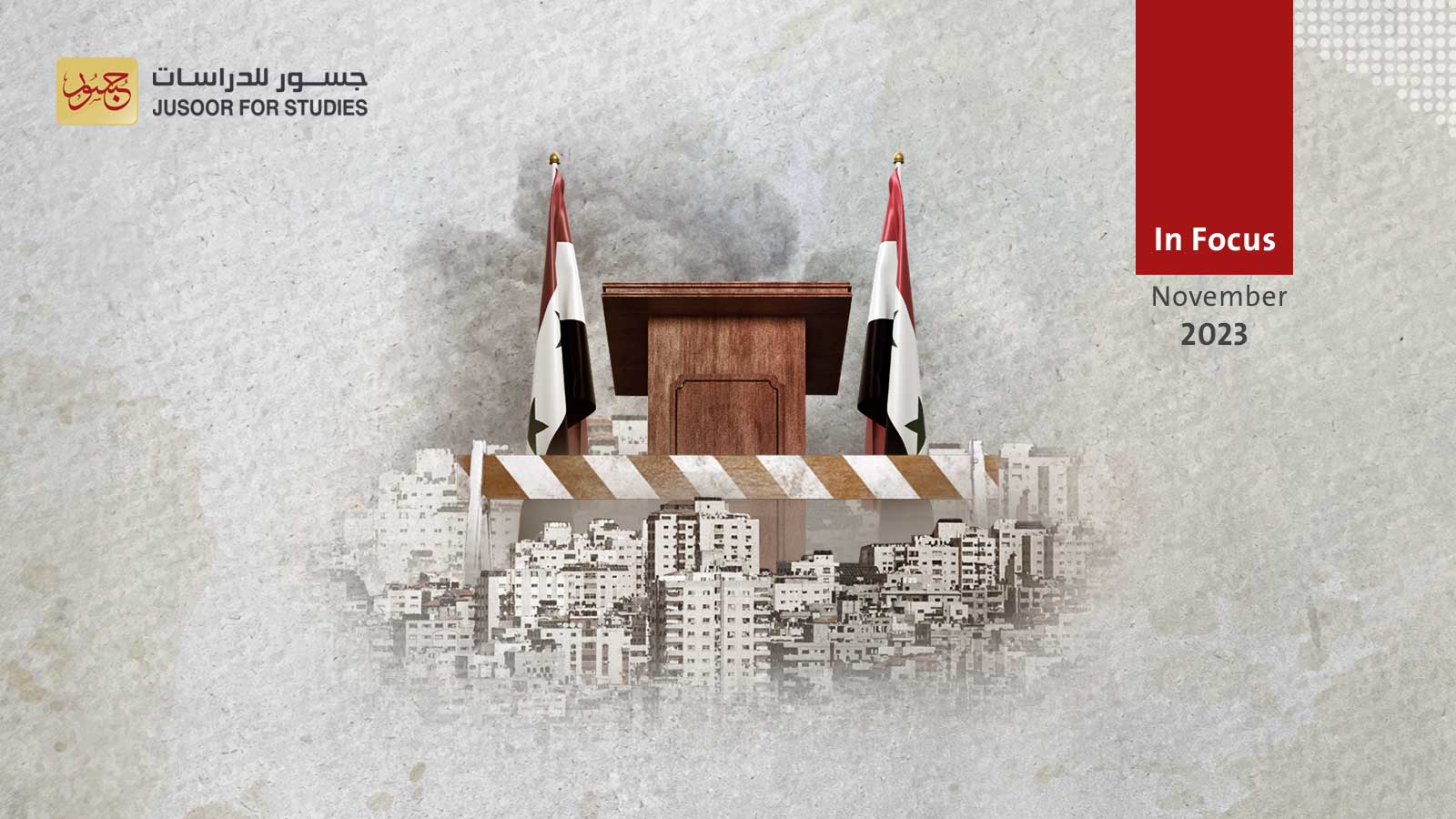Summit on Gaza Reinforces Syria's Global Isolation
Joint Arab-Islamic Extraordinary Summit concerning the Gaza war was held in Riyadh on Saturday, November 11, 2023. The President of the Syrian regime, Bashar al-Assad, who was originally scheduled to attend an extraordinary Arab summit, participated in this summit. The Kingdom of Saudi Arabia unexpectedly announced the merging of the two summits; this decision was mostly due to the failure of Arab foreign ministers to agree on a final statement during the preparatory meetings that could be adopted by the leaders at the Arab summit. This issue is expected to be avoided in the joint summit, which will likely not contain phrases and clauses that may face reservations or rejection from the participants.
Bashar al-Assad's attendance at the joint summit comes despite the suspension of his regime's membership in the Organization of Islamic Cooperation (OIC) since 2012. There appears to be no decision to reinstate the regime to the organization at this time. Therefore, the regime's Foreign Minister Faisal Mekdad did not participate in the OIC preparatory meetings, despite them being chaired by Saudi Foreign Minister Faisal al-Farhan. However, Mekdad did participate in the preparatory meetings of the Arab League.
The invitation of Bashar al-Assad to participate in the summit indicates that the course of Arab normalization is continuing regardless of the seriousness or commitment of the regime in responding to the security and humanitarian concerns pointed out by the Arab Contact Committee. This means that the stumbling block exists only in the procedures of normalization and not in the path itself. Faisal Mekdad took advantage of his presence in Saudi Arabia to learn about efforts to complete the opening of the embassy in Riyadh, after a diplomatic mission of the regime took over the premises at the beginning of October 2023.
Almost all leaders of Islamic countries, on the sidelines of the summit, avoided meeting Bashar al-Assad. This was the case among approximately 55 countries that participated. The only exception was a solitary meeting with Iranian President Ebrahim Raisi. Similarly, most Arab leaders avoided meeting Al-Assad, except for the Presidents of Egypt, Iraq, and Mauritania. The summit was at least an opportunity for a bilateral meeting with Jordan's King Abdullah II, considering Jordan's significant role in the Arab normalization process with the regime, but this did not happen.
On the other hand, the joint summit brought Bashar al-Assad and Turkish President Recep Tayyip Erdogan together in the same hall for the first time since their estrangement. There was a possibility of a handshake or a brief meeting between them, similar to what happened at the opening of the 2022 FIFA World Cup in Qatar between the Turkish and Egyptian Presidents. Such an encounter could have paved the way for resuming the faltering normalization process between Turkey and the Russia-backed regime, which Iran had joined, potentially adding an Arab role to make it a five-party process. However, this did not occur. Instead, the Turkish President left his seat just before Bashar al-Assad's speech.
In summary, the summit, which was focused on Gaza, reinforced the international isolation imposed on the Syrian regime. The process of restoring diplomatic relations with this regime is proceeding without change, despite Bashar al-Assad being invited to attend an Arab summit for the second time - before it became a joint summit. He was treated as if he were non-existent and unwelcome by most leaders and delegations. The sanctions imposed on the regime remain unchanged; as the latter has not gained any economic benefits from Arab countries. Breaking the regime's international isolation broadly remains linked to its serious engagement in the Arab initiative and the step-by-step approach pursued by the UN special envoy, in line with the U.S. and general Western stance. Thus, Bashar al-Assad's presence at the summit is more likely to be a new incentive for the regime to meet international and regional demands.








